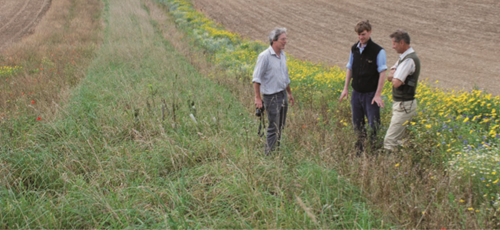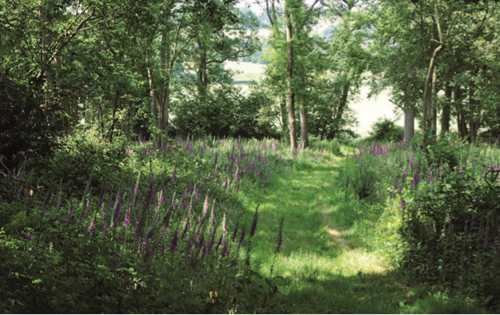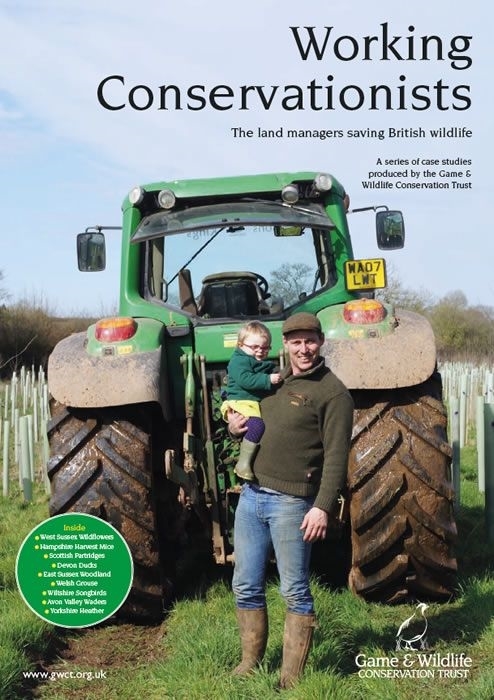How GWCT helps working conservationists

Visit Working for Wildlife - the home of Britain's Working Conservationists >
As the UK’s leading wildlife research charity, GWCT is uniquely placed to enable the transformation to the pioneering approach of working conservationists. For more than 80 years it has worked closely with farmers and gamekeepers on the ground to produce original science, including some of the longest running farmland wildlife monitoring projects in the world.
A defining element of the GWCT approach is to apply research a second time in the field to validate practical solutions, for example, in the case of the predation control study in the Avon Valley. The rural landscape of Britain today has all been fashioned by farming and as it shrinks we all need to share it. Sometimes that means certain wildlife populations get too large in a given area to the detriment of other wildlife. Where that occurs our evidence shows that lawful control is necessary for all to exist.
In some cases our research turns up results which don’t fit our approach; in such cases we don’t hide the result but accept it. That is the nature of using evidence rather than preconceived ideas. As a result of this evidence-led approach, statutory bodies including DEFRA, Natural England, Scottish Natural Heritage and Natural Resources Wales have based much agri-environment policy on GWCT research.
The guiding principle of “working conservation” is that wildlife can thrive alongside other land uses. The GWCT recognised that gamekeepers were no longer the Victorian villains but the unexpected champions of this multiple outcomes approach as farming modernised to meet the post-war demand for food. It carefully studied how they began to use their range of techniques, from trapping to growing small strips of cover crop, to maintain their bird numbers without hindering farm production. Today these game-keeping techniques are vital conservation tools because they support wildlife in a working countryside.
Wildlife knows no boundaries so despite the ever increasing size of farms it is essential that schemes encourage farmers and landowners to work together on a landscape approach. GWCT created the first ‘Farmer Cluster’ which is led by farmers to join up their conservation efforts through mutual encouragement as well as practical support. Similarly, projects such as the river catchment improvement at GWCT’s Allerton Project require high levels of co-operation between landowners.
Past experience has shown that where funds are more specifically targeted and farmers respond voluntarily, rather than through compulsion, with the benefit of good advice, better outcomes can be achieved. A far better approach than heavy handed regulation which creates resentment and resistance.
Specialist knowledge is a key ingredient of any such initiative and GWCT advisors provide practical advice on how to manage land with a view to improving biodiversity. Few organisations have the same degree of trust from land managers developed over generations and with ever greater pressure on the countryside to increase food production, provide space for housing and a deliver a range of public benefits, the survival of our wildlife will depend on that trust.
Do you have a working conservation project to be proud of?

If you combine a passion for wildlife conservation with farming, recreation or other types of land management, we would like to hear about it.
When we asked a farmer recently how much recognition he received on a scale of one to 10 for his fantastic conservation work he said zero and sadly he is not alone. Some of the UK’s most spectacular conservation achievements, are the work of individual farmers, landowners and gamekeepers who have volunteered their own time and money to increase biodiversity on the land they look after and we feel it’s time they were recognised.
This is not a new competition or award scheme and we don’t require detailed information, just a name, place, type of farming or other business operation and anecdotal evidence of conservation success.
We are looking for people from all backgrounds and scale of business and there doesn’t have to be a shoot on the land. We can then build case studies, share best practise and demonstrate how vital private stewardship is to reversing the decline of British wildlife.
Any information will be confidential and we will of course seek consent before contacting individuals or making any information public.
If you would like to be included in our next set of Working Conservationists, please email jdimbleby@gwct.org.uk.
Working Conservationist
Check out our brand new 48-page A4-size colour publication features a series of case studies produced by the GWCT, focusing on the land managers who are helping to save British wildlife. It is a celebration of private stewardship and how passion and hard work can bring real benefits for the environment, wildlife and overall biodiversity.

Buy Now >